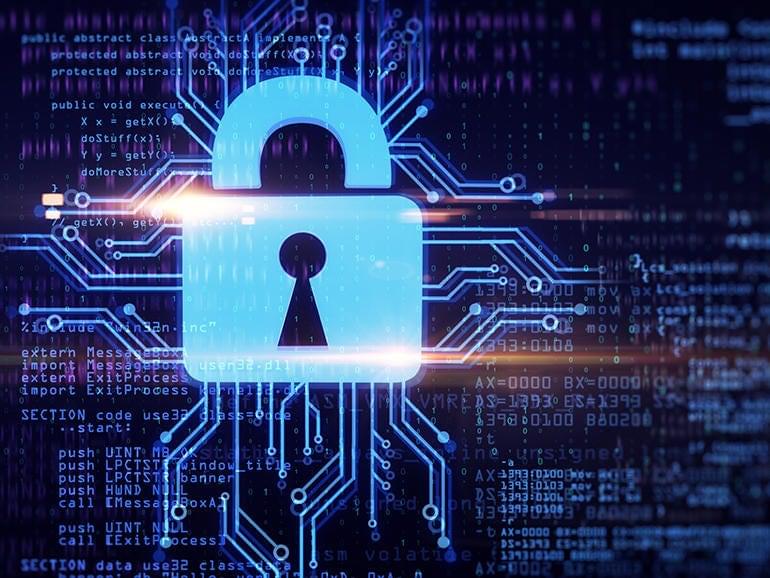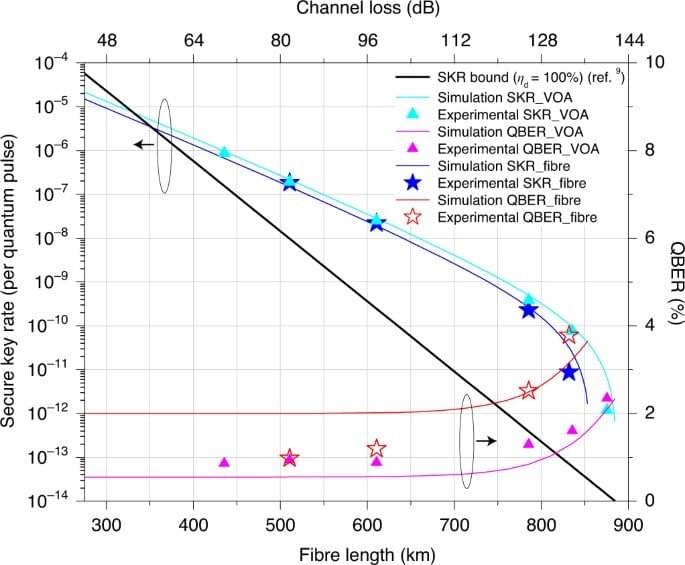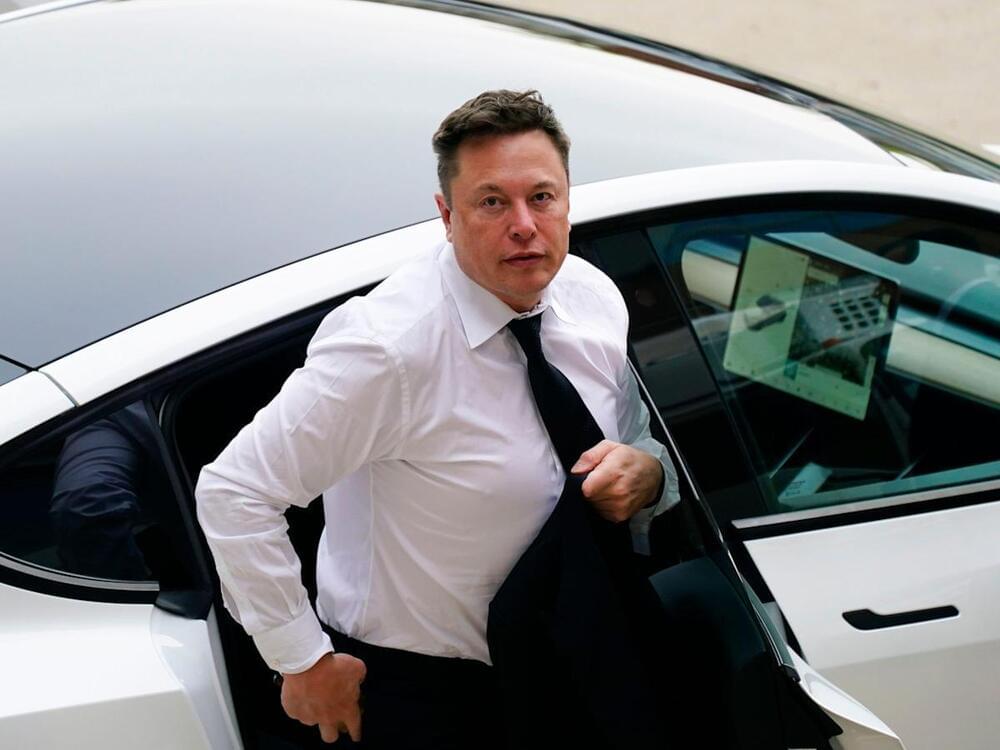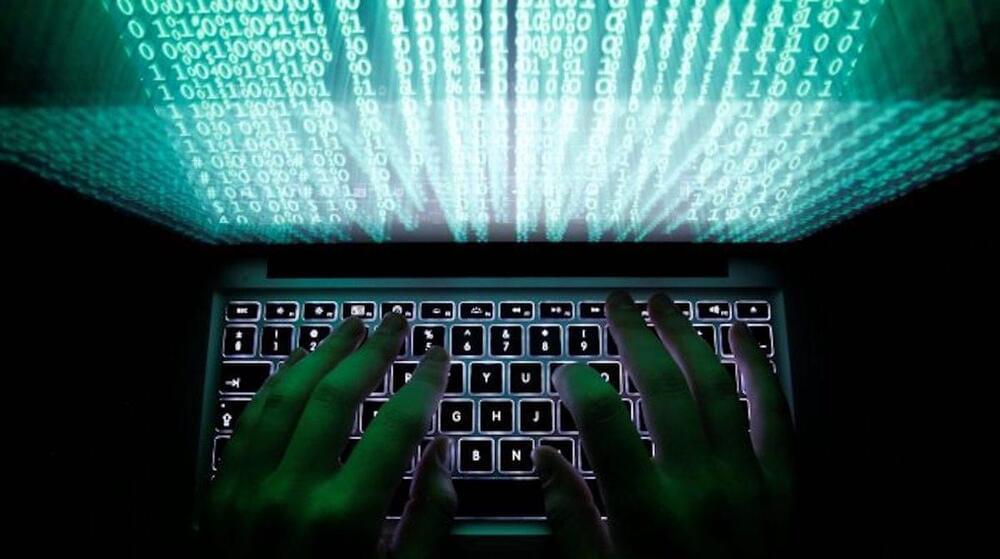Academics say the material could be used to create unclonable physical components suitable for supporting digital security.



Though Meta didn’t give numbers on RSC’s current top speed, in terms of raw processing power it appears comparable to the Perlmutter supercomputer, ranked fifth fastest in the world. At the moment, RSC runs on 6,800 NVIDIA A100 graphics processing units (GPUs), a specialized chip once limited to gaming but now used more widely, especially in AI. Already, the machine is processing computer vision workflows 20 times faster and large language models (like, GPT-3) 3 times faster. The more quickly a company can train models, the more it can complete and further improve in any given year.
In addition to pure speed, RSC will give Meta the ability to train algorithms on its massive hoard of user data. In a blog post, the company said that they previously trained AI on public, open-source datasets, but RSC will use real-world, user-generated data from Meta’s production servers. This detail may make more than a few people blanch, given the numerous privacy and security controversies Meta has faced in recent years. In the post, the company took pains to note the data will be carefully anonymized and encrypted end-to-end. And, they said, RSC won’t have any direct connection to the larger internet.
To accommodate Meta’s enormous training data sets and further increase training speed, the installation will grow to include 16,000 GPUs and an exabyte of storage—equivalent to 36,000 years of high-quality video—later this year. Once complete, Meta says RSC will serve training data at 16 terabytes per second and operate at a top speed of 5 exaflops.

By using quantum key distribution (QKD), quantum cryptographers can share information via theoretic secure keys between remote peers through physics-based protocols. The laws of quantum physics dictate that photons carrying signals cannot be amplified or relayed through classical optical methods to maintain quantum security. The resulting transmission loss of the channel can limit its achievable distance to form a huge barrier to build large-scale quantum secure networks. In a new report now published in Nature Photonics, Shuang Wang and a research team in quantum information, cryptology and quantum physics in China developed an experimental QKD system to tolerate a channel loss beyond 140 dB across a secure distance of 833.8 km to set a new record for fiber-based quantum key distribution. Using the optimized four-phase twin-field protocol and high quality setup, they achieved secure key rates that were more than two orders of magnitude greater than previous records across similar distances. The results form a breakthrough to build reliable and terrestrial quantum networks across a scale of 1,000 km.
Quantum cryptography and twin-field quantum key distribution (QKD)
Quantum key distribution is based on fundamental laws of physics to distribute secret bits for information-theoretic secure communication, regardless of the unlimited computational power of a potential eavesdropper. The process has attracted widespread attention in the past three decades relative to the development of a global quantum internet, and matured to real-world deployment through optical-fiber networks. Despite this, wider applications of QKD are limited due to channel loss, limiting increase in the key rate and range of QKD. For example, photons are carriers of quantum keys in a QKD setup, and they can be prepared at the single-photon level to be scattered and absorbed by the transmission channel. The photons, however, cannot be amplified, and therefore the receiver can only detect them with very low probability. When transmitted via a direct fiber-based link from the transmitter to the receiver, the key rate can therefore decrease with transmission distance.
Lex Fridman Podcast full episode: https://www.youtube.com/watch?v=jhKZIq3SlYE
Please support this podcast by checking out our sponsors:
- Onnit: https://lexfridman.com/onnit to get up to 10% off.
- Clear: https://clearme.com/lexpod and use code LexPod to get 2 months free.
- National Instruments (NI): https://www.ni.com/perspectives.
- SimpliSafe: https://simplisafe.com/lex and use code LEX to get a free security camera.
- Linode: https://linode.com/lex to get $100 free credit.
GUEST BIO:
David Sinclair is a geneticist at Harvard and author of Lifespan.
PODCAST INFO:
Podcast website: https://lexfridman.com/podcast.
Apple Podcasts: https://apple.co/2lwqZIr.
Spotify: https://spoti.fi/2nEwCF8
RSS: https://lexfridman.com/feed/podcast/
Full episodes playlist: https://www.youtube.com/playlist?list=PLrAXtmErZgOdP_8GztsuKi9nrraNbKKp4
Clips playlist: https://www.youtube.com/playlist?list=PLrAXtmErZgOeciFP3CBCIEElOJeitOr41
SOCIAL:
- Twitter: https://twitter.com/lexfridman.
- LinkedIn: https://www.linkedin.com/in/lexfridman.
- Facebook: https://www.facebook.com/lexfridman.
- Instagram: https://www.instagram.com/lexfridman.
- Medium: https://medium.com/@lexfridman.
- Reddit: https://reddit.com/r/lexfridman.
- Support on Patreon: https://www.patreon.com/lexfridman

An experiment, performed by Istituto Nazionale di Ricerca Metrologica (INRIM) on 200 km of the Italian Quantum Backbone, in collaboration with Toshiba Europe, shows that coherent laser interferometry considerably improves the performances of quantum key distribution protocols in long-distance, real-world networks. The study has been published in Nature Communications.
Quantum Key Distribution (QKD) protocols enable cryptographic keys to be shared between distant parties with an intrinsic security guaranteed by the laws of quantum mechanics. This is made possible by the transmission of single photons, the elementary particles of which light is made of.
The interest for this subject extends well beyond the scientific community, and has now a strong strategic and commercial relevance. The European Commission, within the “European Quantum Communication Infrastructure” intitative, aims at integrating quantum key distribution technologies into specific services throughout the European Union within the next 10 years, and INRIM will take part in the design of this infrastructure with the OQTAVO project.


Google has finally rolled out an option on Android allowing users to disable 2G connections, which come with a host of privacy and security problems exploited by cell-site simulators.
The addition of the option was spotted by EFF (Electronic Frontier Foundation), which calls the development a victory for privacy protection.


For enterprises that are looking to bring a zero trust approach as a way to better secure identities and permissions, leveraging advanced AI is now essential in order to achieve accuracy and scalability, ForgeRock CEO Fran Rosch told VentureBeat.
While traditionally, zero trust decision-making has relied mostly upon rules–for instance, rejecting a user request based on an impossible geographic location– ForgeRock adds in AI algorithms that enable far greater accuracy, Rosch said. This accuracy equates to dramatically enhanced security, he said–citing an example of a recent customer that increased its entitlement rejections by 300% after deploying ForgeRock.
“Because it was previously all done by these rules, and people were rubber-stamping these entitlement requests, they were letting these things go that they should never have approved,” Rosch said in a recent interview. “That was increasing the risk to the company. Because there were people who had no business accessing HR data, and no business accessing sales data, that were getting that information. So by leveraging the AI, a 300% increase in request rejections really tightened up the security of the organization.”

At first glance, Cui is depicted as a beautiful young professional in her 20s who joined Vanke’s accounting department in February 2021 and is the recipient of the company’s Best Newcomer Award. Cui has a 91.44 percent success rate in collecting overdue payments. In December 2021, Baixin Bank launched its first virtual employee named AIYA, and Jiangnan Rural Commercial Bank launched its VTM digital employees. Earlier in April 2019, Shanghai Pudong Development Bank introduced its first AI-powered digital employee named Xiaopu, capable of serving its bank users at different posts Notably, China’s first “meta-human” AYAYI made its debut on Chinese e-commerce platform Xiaohongshuin in May 2021. The hyper-realistic digital human garnered three million views on its first post.
According to a 2019 report compiled by Deloitte, a global professional services network, experts predict that using AI at a larger scale will add as much as $15.7 trillion to the global economy by 2030.Deloitte’s report shows that from 2015 to 2020, the average annual compound growth rate of the global artificial intelligence market was 26.2 percent, while the growth rate of the Chinese AI market during the same period was 44.5 percent. Another report by Deloitte suggests that in 2025 the scale of China’s artificial intelligence industry will exceed $85 billion.
Presently, there are about 2,600 artificial intelligence companies in China. Most located in Beijing’s Haidian District technology hub, The Center for Security and Emerging Technology (CSET), a U.S. think tank, estimated the CCP’s total R&D investment in artificial intelligence in 2018 was between $2 billion and $8.4 billion.
From news anchors to company employees, AI-powered virtual humans have quickly taken over human posts in China.
In December 2021, China’s property giant Vanke said its employee of the year was not a human.
According to The Paper, a Chinese state-owned media, the company declared an artificial intelligence (AI)-powered debt collector named “Cui Xiaopan” as its employee of the year. The virtual employee was created by Vanke’s in-house team using the Xiaoice Framework, an AI system developed by Microsoft Asia.